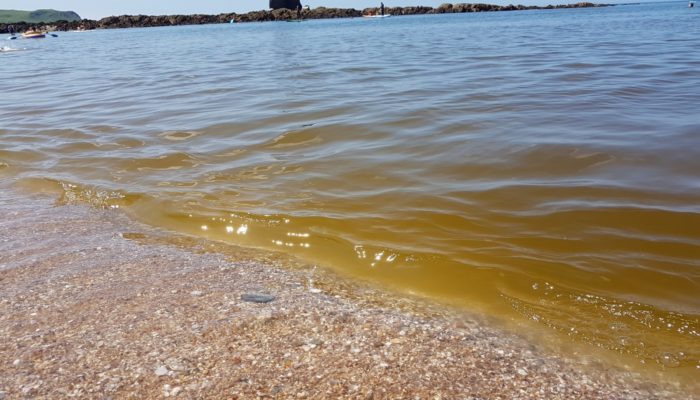
The EGU 2020 abstract submissions are open until January 15. Here, we’ll highlight the planned Biogeoscience (BG) sessions. Stay tuned and find the session for your abstract!
Today’s focus is on the more general BG-sessions for those of you dealing with the important nutrient cycles.
First, BG1.2: Nitrogen cycling in terrestrial and aquatic ecosystems: microbiological processes, gas fluxes, atmospheric impacts and global change feedbacks. This session is convened by Tuula Larmola, Sami Ullah and Dianming Wu.
The convenors say:
Anthropogenic disturbance of the nitrogen (N) cycle has more than doubled the amount of reactive N circulating in the terrestrial biosphere alone. Exchange of reactive/non-reactive nitrogen gases between land and atmosphere are strongly affecting Earth’s atmospheric composition, air quality, climate change and human health. This session seeks to improve our understanding on how global land use and climate change affect N biogeochemistry in terrestrial and aquatic ecosystems and what atmospheric interactions will be most important in influencing the climate. We seek to link microbiological N cycling processes and exchanges of nitrogen gases at the land-air interface with ecosystem dynamics, air quality and atmospheric chemistry. The session covers fluxes of different reactive and non-reactive nitrogen gases and the underlying transport and transformation processes in soils and sediments, e.g., fixing of atmospheric dinitrogen (N2) in ecosystems, emission/deposition of ammonia (NH3), nitric oxide (NO), nitrous oxide (N2O), nitrous acid (HONO), nitrogen dioxide (NO2), and N2 (as a result of denitrification) as well as their interactions with ozone (O3), volatile organic compounds (VOCs), free radicals and aerosols in the atmosphere, and the associated impacts on air quality. Furthermore, the interactions of N cycling with other elemental cycles (e.g., carbon, phosphorus) in ecosystems and terrestrial-aquatic linkages, and feedbacks to biodiversity loss and water pollution will be explored. We welcome contributions covering a wide range of studies including methods development and application of new devices, observational, experimental, and modeling approaches.
Then, two phosphorous-focused sessions.
BG1.7: Phosphorus: Environmental fluxes, sustainable use and recovery. This session is convened by Thilo Behrends, Andreas Voegelin and Sylvia Walter.
The convenors say:
Phosphate (P) as an essential resource for food production is becoming scarce and its uncontrolled loss from agricultural areas is in conflict with the principles of a circular economy. Enhanced loading of surface waters with P is the main cause for eutrophication and presents a key challenge in meeting the objectives of the EU Water Framework Directive. Understanding and controlling environmental P fluxes therefore is key to target both problems, to develop new methods and approaches to manage environmental P fluxes and to improve surface water quality.
This session covers all aspects of P fluxes from soils via groundwater, rivers and estuaries towards lakes and oceans. This includes research at all spatial scales: From investigating the mechanism of P release and immobilization at molecular scale to studies on the transport of P from land to oceans at global scale. Presentations related to managing environmental P fluxes in agricultural areas, to recover P from natural environments, and to develop sustainable use of P in agriculture will be of special interest. We invite contributions based on experimental research as well as modelling and field studies targeting the environmental P fluxes.
And last, BG1.8: Phosphorus cycling: interdisciplinary results linking phosphorus and other element cycles. This session is convened by Marc Stutter, Phil Haygarth, Tom Jilbert and Federica Tamburini.
The convenors say:
Phosphorus (P) is essential to life, and as a key limiting nutrient, regulates productivity in terrestrial and aquatic systems. Strong geochemical interactions between P and other elements control the mobility and bioavailability of P in the environment, necessitating a coupled understanding of element cycles influencing P. At the same time P provides perhaps the most topical example of a critical resource element whose use is currently inefficiently managed. Leakage of mined P into the environment through a variety of processes (e.g. excess chemical fertiliser usage, or effluent discharges) is responsible for eutrophication and the acceleration of natural P cycling in terrestrial and aquatic systems. This puts P at the forefront of environmental and societal concerns and demands that our biogeochemical knowledge of P cycling ought to be developed through interdisciplinary research. This session aims to explore biogeochemical P cycling in the context of benefitting ‘systems understanding’ spanning terrestrial and aquatic compartments.
Topics included should explore: Links between P and wider element cycles, for example with other macro- and micro- nutrients and controls of P availability through geochemical parameters such as Fe; P cycling studies that bring into focus the interplay of biotic and abiotic controls within, and between, environmental compartments; Drivers of change (climate, management, societal) acting on the coupling of P with other element cycles; Processes, modelling and management against a background of the key issues for: P release from soil to plants; P release from soil to water; long term P supplies and the global P cycle.
What cycle drives your research? If you study the anthropogenic contribution to nitrogen fluxes (think land use, ecosystem dynamics and air quality, then we suggest submitting to BG1.2. Those analysing phosphate and water quality with food production in the spotlight could submit to BG1.7. Or if you are looking into phosphorous’ interaction with other elements and the long-term global P cycle, consider submitting to BG1.8.
Post written by Alexandra Rodler
